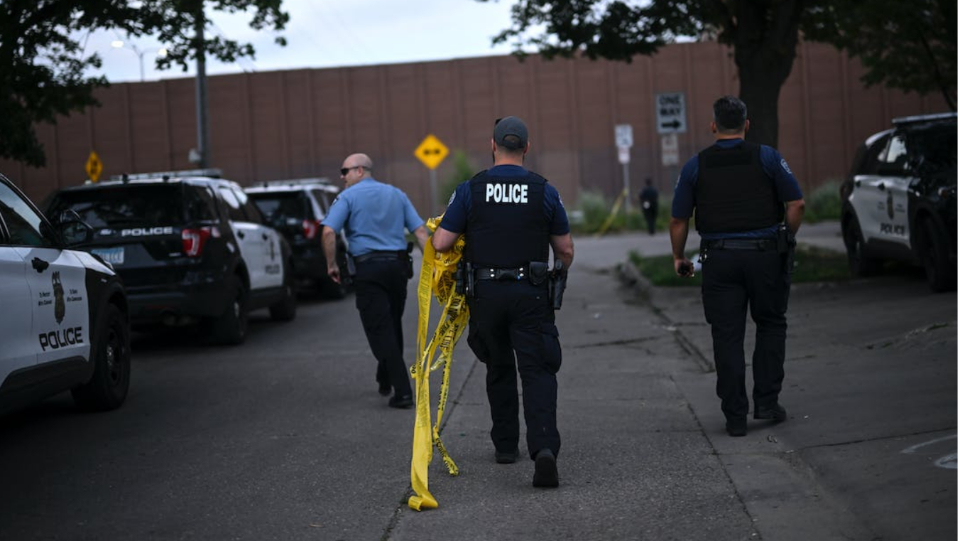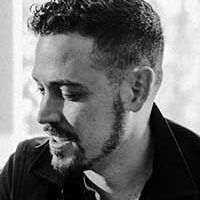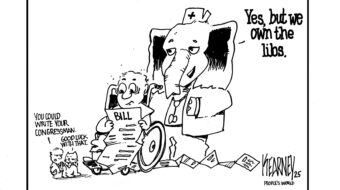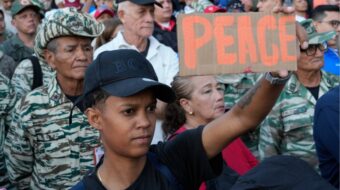
The murders of Tyre Nichols in Memphis and Atlanta activist Tortuguita were not the first deaths at the hands of the police in 2023, and they certainly will not be the last. Last year, in 2022, we saw the highest incidence of police killings on record, and it appears this year is already trending in the same direction.
Not only is the openness of such violence becoming normalized but so are the official responses from other institutions, verging on a form letter-like reaction to police brutality and state-sanctioned (racial) violence. While politicians have pointed toward some political (yet “peaceful”) calls for action, responses from educational institutions and corporations have put a focus on mental health, highlighting crisis lines or assistance programs for people to deal with their matters privately.
This focus on individual mental health is of course no accident, especially many cities, in response to rampant police violence, have created alternative policing programs to respond to the ever-growing number of mental health crisis calls. Police were responsible for 104 deaths in the U.S. in 2021 when responding to such calls.
After the police murdered Porter Burks, a 20-year-old Detroit Black man suffering from schizophrenia, the Detroit Police Department decided to explore such alternatives. Similar programs include Durham, N.C.’s HEART program, Eugene, Oregon’s CAHOOTS, the Portland Street Response team, and Denver’s STAR, which has already witnessed significant decreases in crime.
Many, if not all, of these programs send unarmed professionals, usually trained in mental health and crisis response. Considering that 97% of people killed by police in 2022 were due to police shootings, this seems like a step in the right direction.
During a press conference in November of last year, Detroit City Council Member Gabriela Santiago-Romero stated that she would be working with the DPD to create a non-police response program that would respond to the 50-60% of mental health calls that are “nonviolent,” in an effort to reduce the amount of police brutality during these crises.
However, this “nonviolent” criteria seems to leave the door open for something more, and we’re left wondering, is this enough? Digging a little deeper, we might wonder whether, in a sense, alternative policing lets police off the hook?”
The use of “mental health” in the planning of alternatives to policing and demands for change is of significance and might not be as clear as some advocates think. Perhaps a good way to illustrate this is by the (self-)reflexivity of understanding of homelessness: In a very crude, reductive sense, many homeless people are judged, if not simply regarded, as “crazy”; likewise, the common excuse for why someone is homeless is because they’re crazy.
Although many homeless people suffer from mental illnesses either before or after becoming displaced and dispossessed, the common narrative leads us to believe that as long as one stays “sane,” they will never have to worry about homelessness. Perhaps police violence toward the homeless is more than analogous here.
At first, this seems like a simple piece of misinformation that could easily be corrected, but the real question that remains is where anyone truly believes this.
It appears the role of mental health has taken on a life of its own today. With the simultaneous rise of notions like self-care and the wellness industry, it’s becoming tough to discern what mental health actually might be.
The efforts and calls to destigmatize mental illness from only a few short decades ago appeared, at first, to be making headway: Many educational institutions at least acknowledge the importance of maintaining and managing mental health for students and teachers, and it’s becoming common for corporate HR departments to offer more time off and health benefits related to mental health.
It’s far more socially acceptable these days to talk about being depressed, stressed, or anxious, and even to acknowledge going to therapy or being on psychotropic medications.
What is notably missing here, though, is any direct discussion of mental illness itself. For anyone willing to talk about how stressed or anxious they feel, or even “how OCD” they are, how many people are comfortable talking about (or hearing someone talk about) their schizophrenia, homicidal or suicidal ideation, current struggles with addiction or eating disorders, and so on?
This is best illustrated by celebrities and athletes who have opened up about their struggles with mental illnesses: As long as the story is in the past tense, we applaud them for their overcoming addictions and eating disorders and suicidality. Yet, drunk celebrities are still a desired spectacle and if one should take their own life, the causes of death—i.e. the method and the reasons for why they did it—become fetishized.
Why is mental health an acceptable topic while mental illness is so intolerable?
Studies over the last couple decades have not helped the matter, arguing that mental health and mental illness, although related, are of two different continua with their own criteria. Even the CDC’s definition of mental health distances itself from mental illness. Although, the findings of such studies suggest other factors to consider—i.e. the difference in mental illness occurrences in younger and older generations—the shortcoming is in the difference in what this could mean for us and what this truly means today: mental health functions as an ideology.
We can openly talk about mental health without embarrassment, while mental illness must be handled and fixed behind closed doors, with one’s doctor, or on anonymous crisis lines. Mental health is the accepted ideological notion while mental illness remains the unspoken underside that supports the fantasies that eating healthier, meditating more, breathing right, getting proper sleep, etc. will all stave off mental illness.
Putting this in the World Health Organization’s words (which, incidentally, can no longer be found on their site), mental health means “cop[ing] with the normal stresses of life” and “work[ing] productively and fruitfully.” Is this what destigmatizing mental illness really won us?
Going back to the topic at hand of nonviolent mental health calls: Isn’t there something inherently violent, both subjectively and objectively, in mental health crises? From the subjective standpoint, do mental illnesses not enact some level of violence over ourselves, sometimes exploding in public spaces like schools and workplaces?
From being suicidal to having homicidal tendencies to major depression to schizophrenia, there is a level of violence that cannot be fully accounted for in the moment, which can at least appear as externally threatening to another. From the objective point of view, there are at least two major factors to consider here: 1) Mental care is not affordable for (and thus not available to) everyone; and 2) this further obfuscates mental illness by splitting the conversation into violent and non-violent mental health situations, immediately equating “mental illness” to “inherently violent.”
So, will alternative policing responses reduce police violence or just enough police violence? The answer seems concerning when taking into consideration that there already exist threatening levels of racial violence within mental health practices.
For example, Black people with mental illnesses are more likely to be incarcerated than people of any other race and are more likely to be (mis)diagnosed with schizophrenia or other psychotic disorders than a mood disorder, not to mention that Black people are treated with more hostility by healthcare professionals than non-Hispanic whites. Does this not already set a precedent for evaluating what is and is not a “nonviolent” mental health call?
Furthermore, what type of “mental health” is being considered of the cops who emptied 38 rounds at Porter Burks? Although alternate policing response teams or departments do, in a way, open the possibility of deflecting funds away from the police department and, if crime does continue to decrease as a result of such alternatives, the potential for replacing police with mental health professionals altogether. But such response teams are only part of the solution.
Giving control to professionals trained in such crises only addresses the fact that guns and authority figures tend to exacerbate these situations. It does not address (but rather seems to endorse) the fact that police appear “helpless” and unable to prevent themselves from shooting down the mentally ill, Black people, protesters, etc.
There is a necessary supplement to alternative policing response teams, in order to not only address the (expected) budget increases (undoubtedly shared with police departments), but also the unencumbered violence which will continue despite “violent” and “nonviolent” distinctions.
Including “violent police acts” within the mental health crisis response is needed: Not only is this a form of self-critique but also a way of “policing the police” so to speak. Rather than trying to understand the “mental health” condition it took to shoot 38 times at a 20-year-old—or to beat someone to death with the help of four others while they cried out for their mom, or to choke someone out until they went limp—for the sake of understanding the cop, the effort needs to be toward classifying such acts as “violent mental health crises.”
This would not just shift the language toward defining (racist) police brutality as a mental illness but also reconcile the antagonism of the police (presence, practices) with the anticipation of violence from mental illness. Such a reconciliation would, in effect, change the definition and ideological necessity of mental illness as we know it today. This is our needed ethical act.
As with all op-eds published by People’s World, this article reflects the opinions of its author.










